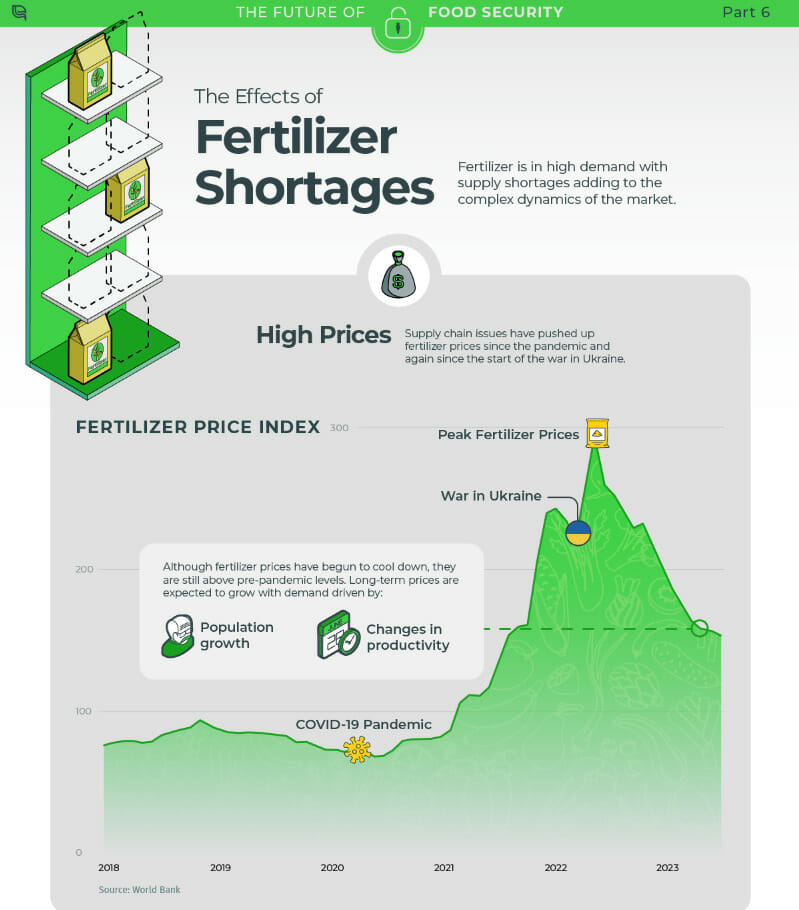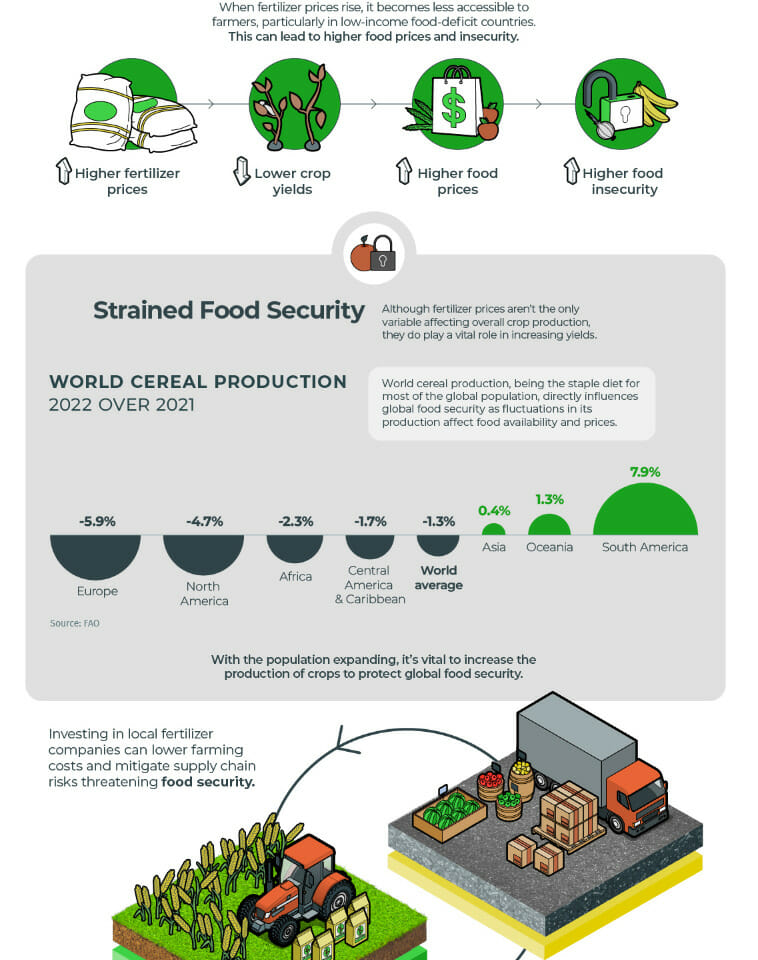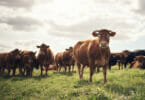The following report is by ZeroHedge:
Fertilizer, the lifeblood of agriculture and a key input in global food production, is currently in high demand.
However, as Visual Capitalist’s Tessa Di Grandi and Sarbrina Fortin explain below, a notable supply shortage could trigger a domino effect of harmful consequences, if not addressed.
In this visualization below, from Brazil Potash, we take a look at the knock-on effects of fertilizer shortages:


High Fertilizer Costs
Recent supply chain disruptions, initially caused by the COVID-19 pandemic and later exacerbated by the onset of the war in Ukraine, have been causing fertilizer prices to skyrocket. Although these prices have slowly begun to cool, they are still hovering significantly above their pre-pandemic levels.
Long-term prices are expected to be driven by the growing global population and evolving patterns in agricultural productivity.
Rising fertilizer prices have a critical impact on the accessibility of this vital commodity to farmers. This is especially true for farmers in low-income, food-deficit countries. As a result, we see a direct impact on global food prices and overall food security.
Strained Food Security
Although fertilizer prices are not the sole determinant of overall crop production, they play a vital role in optimizing yields. An imbalance in this dynamic can have severe consequences.
World cereal production declined 1.3% year-over-year from 2021 to 2022, with Europe down 5.9%.

Research shows that high fertilizer prices in 2023 could lead to increased undernourishment. This would affect around 100 million people and cause approximately 1 million additional deaths.
With the planet’s population expanding, it’s critical to ramp up crop production to safeguard global food security.
The Case For Localized Production
One strategy to combat the rising cost of fertilizers and avoid the looming risk to food security is investing in new, localized fertilizer companies. This approach could significantly reduce costs, creating a buffer against supply chain disruptions.
Brazil Potash is actively involved in extracting and processing local potash ore, a key ingredient in many fertilizers. This enhances yields and fortifies crop growth across Brazil, effectively creating a localized supply chain resilient to global disruptions.
With innovative approaches like those taken by Brazil Potash, there’s hope to offset the potential risks to global food security.
AUTHOR COMMENTARY
The reasons for fertilizer shortages in the media are either dishonest, a malignment of the truth, or are overexaggerated. While it is true that the Russia-Ukraine did cause a major rift in fertilizer and grain exports (as I reported many times when the war broke out last year), the ruse that “Covid caused it” is ridiculous, among other things.
One of the explicit tenets of these overarching climate agendas is to vastly reduce fertilizer. The Absolute Zero framework plainly says:
[By 2030] National consumption of beef and lamb drops by 50%, along with reduction in frozen ready meals and air-freighted food imports. [By 2050] Beef and lamb phased out, along with all imports not transported by train; fertilizer use greatly reduced.
So there are more shady deals and actions at hand that we are not seeing that are contributing to this, especially as the West has made it clear that they want to go all-in on GMOs, pesticides, and gene-editing crops; whereas countries like Russia are banning all of it and prioritizing organic husbandry.
More food shortages and deep famine down the road are being orchestrated.
[7] Who goeth a warfare any time at his own charges? who planteth a vineyard, and eateth not of the fruit thereof? or who feedeth a flock, and eateth not of the milk of the flock? [8] Say I these things as a man? or saith not the law the same also? [9] For it is written in the law of Moses, Thou shalt not muzzle the mouth of the ox that treadeth out the corn. Doth God take care for oxen? [10] Or saith he it altogether for our sakes? For our sakes, no doubt, this is written: that he that ploweth should plow in hope; and that he that thresheth in hope should be partaker of his hope. (1 Corinthians 9:7-10).
The WinePress needs your support! If God has laid it on your heart to want to contribute, please prayerfully consider donating to this ministry. If you cannot gift a monetary donation, then please donate your fervent prayers to keep this ministry going! Thank you and may God bless you.







